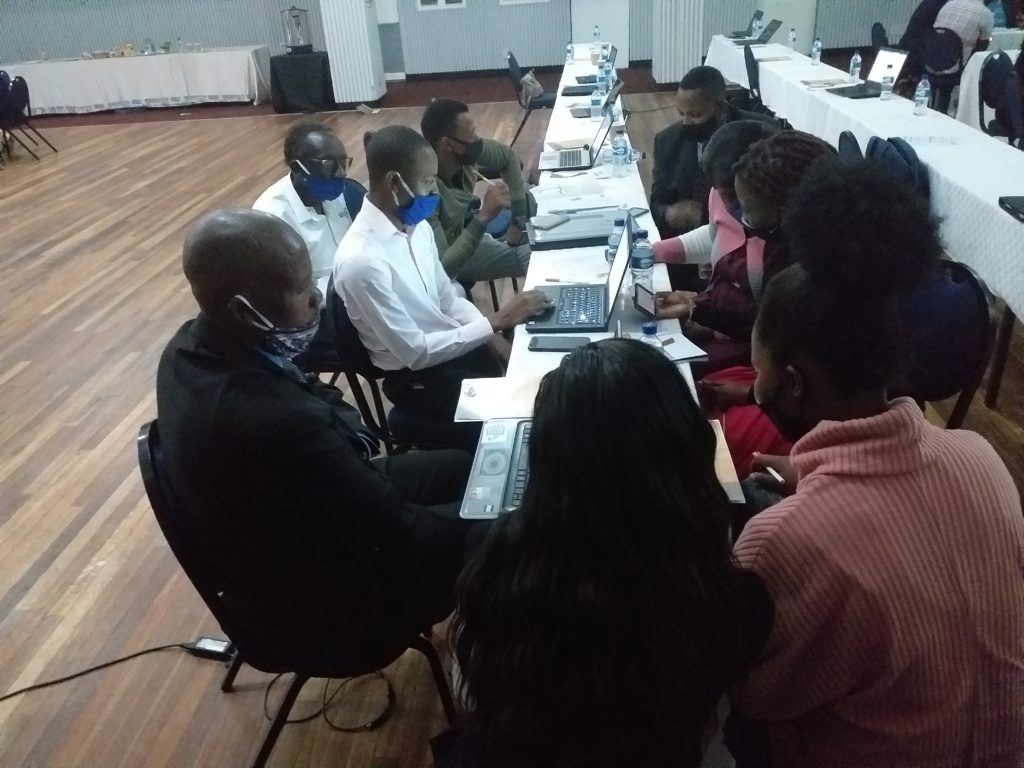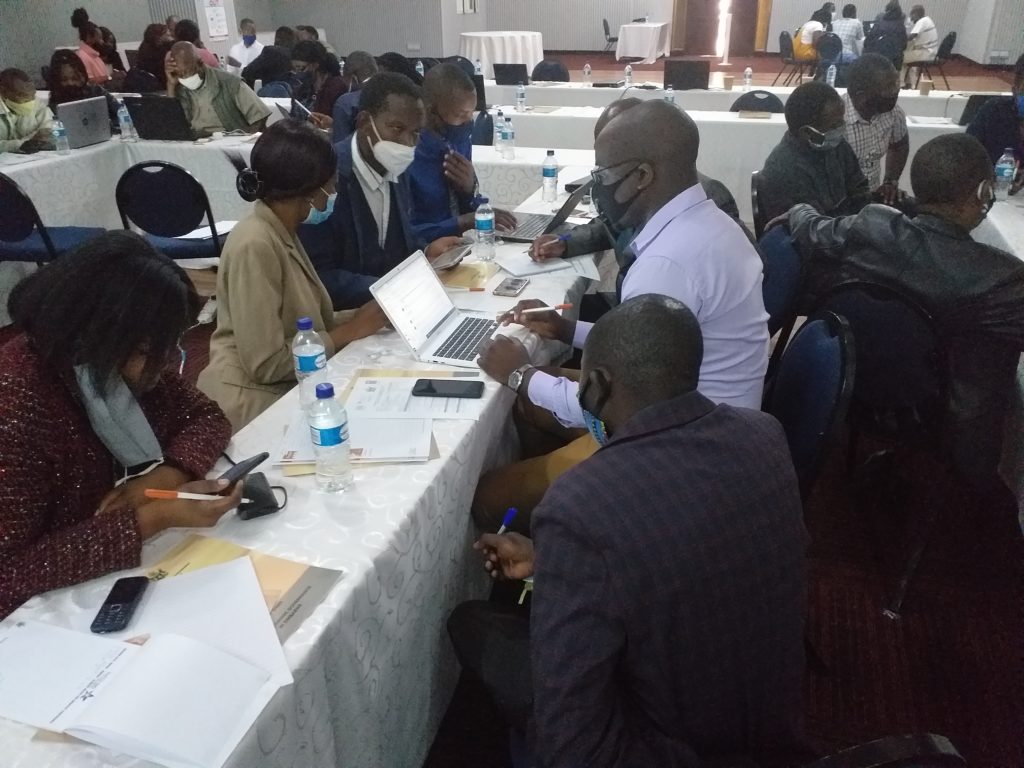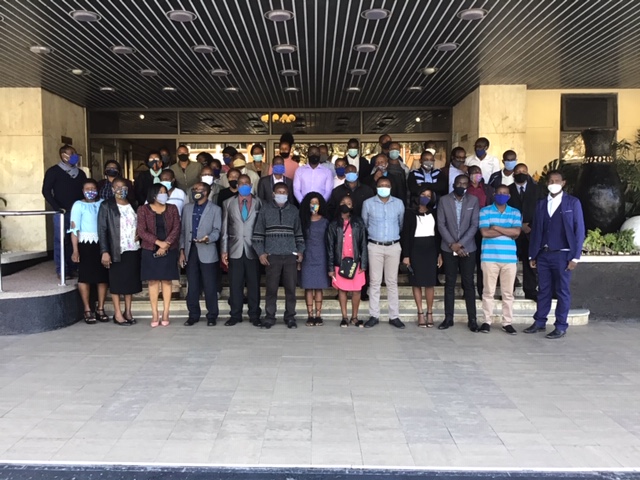On the 11th September 2020, the Ministry of Environment, Climate, Tourism and Hospitality Industry, in collaboration with UN CC:Learn and UNDP Zimbabwe, held the National Climate Change Learning (NCCL) Strategy Validation workshop to bring stakeholders together to validate the draft NCCL Strategy to deliver climate change learning and capacity development in the country.
The one-day event was held in Bulawayo and drew together representatives from various stakeholder groups, including government, the private sector, CSOs, educational and vocational training institutions. In compliance with national COVID-19 protective measures, participation was limited to only 50 participants. Virtual participation was organized for those who were not able to attend in person, including representatives from the UN CC:Learn Secretariat in Geneva and MIET Africa.

In his opening remarks, Mr Angus Mackay, Head of the UN CC:Learn Secretariat congratulated the Ministry of Environment, Climate, Tourism and Hospitality Industry on the excellent work done in developing Zimbabwe’s first National Climate Change Learning Strategy, despite the challenges of the COVID-19 pandemic. He underlined the importance of building climate change knowledge and skills across society so as to provide a ‘sea of learning and knowledge’. He further welcomed the engagement of the education sector in the meeting and process, including schools and teachers, as a key means of building up Zimbabwe’s response to climate change and promote climate action. He also stressed the importance of taking a wholesale approach to professional training by engaging national training institutions and universities in order to make climate change training systematic, recurrent and sustainable.
Welcome remarks were delivered by Mr. Washington Zhakata, Director for the Climate Change Management Department in the Ministry of Environment, Climate, Tourism and Hospitality Industry. He reminded the participants that the climate will not stop changing because of the COVID-19 pandemic, so there is still a pressing and ongoing need to continue taking climate action and the role everyone has to play in steeping it up. With the country being negatively impacted by climate change, there is a need to climate-proof all socio-economic sectors and enhance preparedness. He emphasized that tackling the climate change challenge requires new ways of thinking, new approaches to development and new partnerships across all sectors, all nations and all societies. Stakeholders were urged to be responsible and work together to promote climate-friendly ways of doing things and this NCCL strategy comes at a good time to do that.
Specific objectives of the workshop include:
- To discuss and validate the National Climate Change Learning Strategy and check that it includes and has incorporated all stakeholders’ inputs;
- To review the Monitoring and Evaluation Framework and an Implementation Plan for the NCCL Strategy;
- To discuss next steps on the implementation of priority actions and financial plan for the NCCL Strategy
Sticking to the five priority sectors of the NCCL strategy, participants discussed the Action Plan; the M&E and to come up with a resources mobilization plan that would help finance the various activities in the strategy. Some questions to lead the group discussions included: e:
- Is the proposed action feasible?
- Is the draft budget proposed enough? What do you think would be the sources of funds in addition to those proposed?
- In addition to the cooperating partners proposed, who else do you recommend being added?
- Are you agreeable to the proposed target audience for the action, who else can be added?
- What do you think are the potential financial mechanisms to support the implementation of actions proposed in the Strategy?
- What are your general comments on the Strategy? Do you adopt it? Are there any areas for improvement?

A number of recommendations were given towards the finalization of the strategy with the aim of finalizing and launching it by mid-October 2020. Implementation of the strategy will kickstart in parallel with the finalization process with two priority actions planned to start immediately. The actions are deemed as quick wins which can ride upon other complementing activities already on-going within the country in the sectors prioritized: i) Mainstreaming Climate Change into Teacher Training in Zimbabwe; and ii) Capacity building of rural youth groups and youth organizations.
At the event, MIET Africa also gave a presentation on its response to the impact of Covid-19 on its activities. Participants got a glimpse of the FutureLife-Now programme and the benefits that are coming from it. The impact of Covid-19 on FutureLife Now Programme implementation was also addressed. In addition, MIET Africa laid out the new ways in which they are trying to reach a broader number of stakeholders. These comprise radio programmes, sms messaging, print materials, and journals
Zimbabwe joined the UN CC:Learn Programme to scale up the efforts being done to strengthen climate change learning within the country. The National Climate Change Learning strategy being devised in partnership with UN CC:Learn aims to advance the Nationally Determined Contribution (NDC) and the National Adaptation Plan (NAP), which would further help Zimbabwe address the several challenges posed by climate change, such as extreme weather events.

